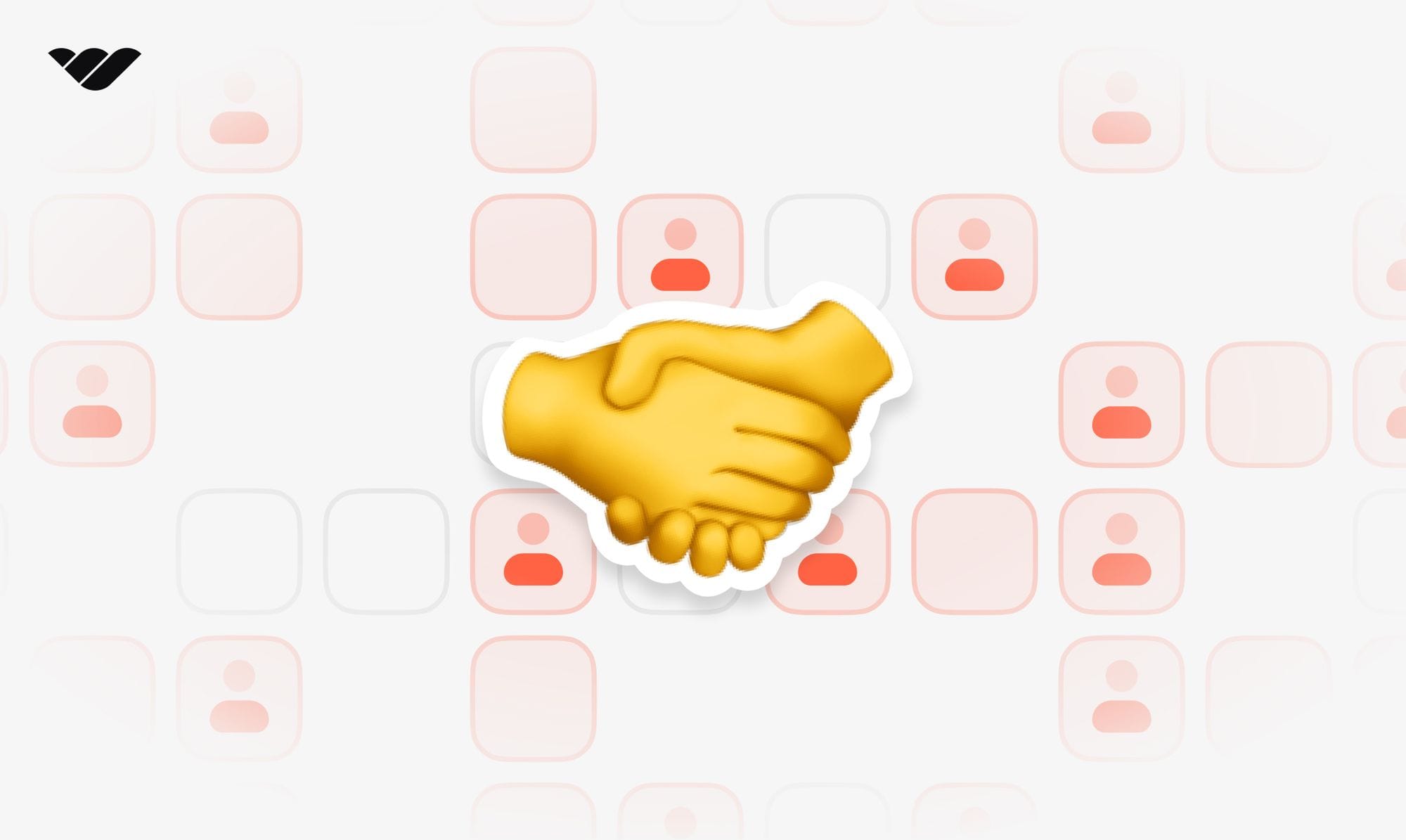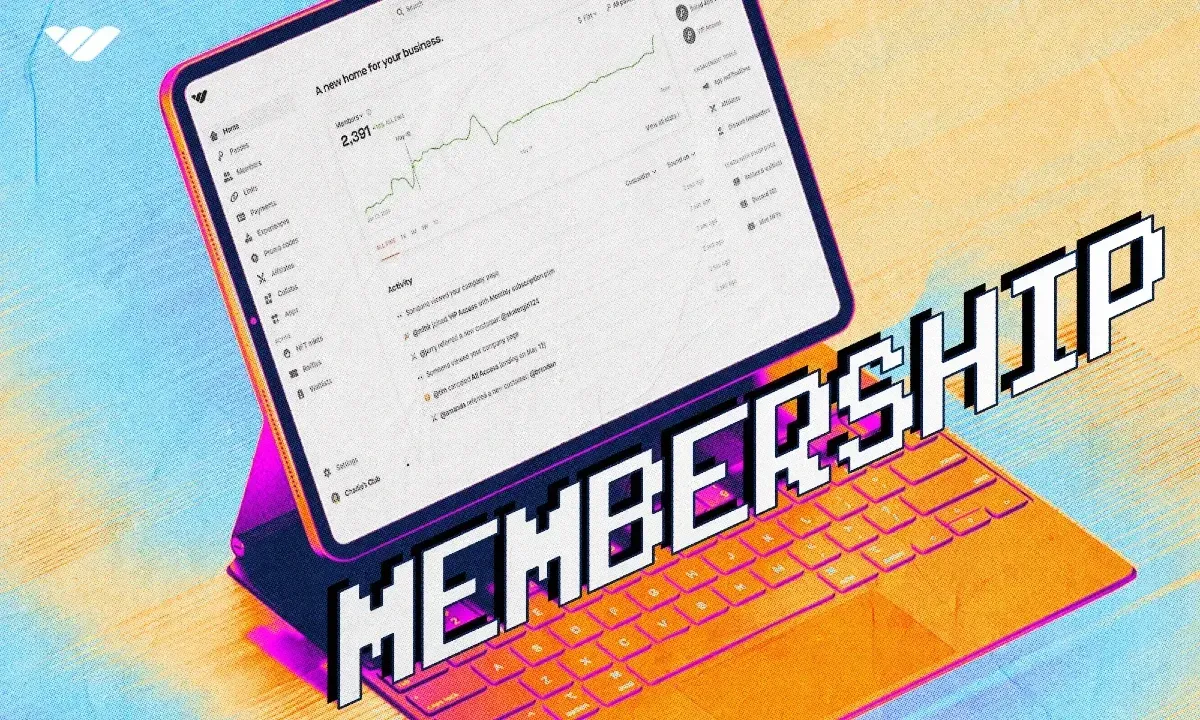If you’ve ever considered a career change or just wanted a way to monetize your skills, your hobbies or your favorite activities, you might at some point have considered starting an online business. More and more people are starting side hustles and creating alternate revenue streams for themselves, and in some cases growing those into full-fledged businesses very quickly.
Entrepreneurship isn’t easy, but we think it’s definitely worth looking into if you’re hungry for a change. The problem is, most folks fall at the first hurdle—finding a solid business idea. For that reason, we’re going to detail 50 different online business ideas so that you should find at least a few that fit you no matter your background or experience. We’re also going to look at how to get started with an online business and what you’ll need for it, so read on!
50 Online Business Ideas You Can Start in 2024
One of the most challenging parts of starting an online business is figuring out your niche, so let’s get right into our list of 50 great online businesses you might want to consider, whether you’re looking to dive head first into a new career or grow it as a side hustle.
#1. Start an Online Shop

It’s never been easier to sell products online, so if you can imagine creating any sort of product, you should definitely consider ecommerce. There are two main considerations before getting started. First, you need to create a website or find a marketplace like Whop to sell your thing, and then you need to consider the manufacturing and fulfillment side of the business. It’s even easier if you’re selling something digital since Whop can take care of just about everything else for you, letting you concentrate on getting your product just right.
#2. Explore Dropshipping
Dropshipping is an ecommerce business model that lets you run an online store without actually holding any physical inventory. When you take orders, you forward them directly to your partner wholesalers or manufacturers who take care of the rest, including storage, picking, and packing. Your main areas of purview as a dropshipper are marketing, sales, and customer support. This isn’t to be underestimated, though, since you don’t have much control over the logistics—when customers have issues, you’ll have to fall back on your manufacturer, so communication with them is key.
#3. Sell Your Prints
If you’re the creative type or just have some designs in your head that’d look good on the side of a mug or the front of a hoodie, consider the print-on-demand (POD) ecommerce model. It’s just like dropshipping, except you’re adding a print service to the mix—and there are a lot of firms which’ll happily do it all for you. POD is a simple online business to run, and it complements lots of other models. You’ll see lots of your favorite influencers selling their own ranges of mugs and hoodies, for example, which shows you just how easy it is to get started with POD.
#4. 3D Print Your Products
This would have been impossible a couple of decades ago, but today, a home 3D printer can be a fantastic investment! You can use your own printer or a 3D printing service to create products that you sell in your own online store—this’ll work just like any other online store, except you might need some CAD (computer-assisted drawing) skills to make your vision a reality. If you’re doing your own printing you’ll probably have to think long and hard about fulfillment as well—storage, picking, packing, and delivery might all have to begin with you.
#5. Curate Subscription Boxes
Subscription boxes are a neat ecommerce model where you’ll be hand-picking a selection of products and selling them via a regular subscription. Just like how milk and newspapers used to be delivered to houses every day, you can set up innovative subscription boxes in exchange for recurring revenue—you’ll find that there could be a market for all sorts of boxes, such as monthly fitness supplements or weekly cheese selections.
🤔Ecommerce Tip: Success in ecommerce often comes down to fulfillment and discovery. Make sure you link up with the right supply chain partners when it comes to models like dropshipping, and listing your ecommerce store on a top digital marketplace like Whop ensures that you’ll be seen by your target consumers.
#6. Retail Arbitrage

Arbitrage is the practice of buying a product cheaply on one market and selling it for a higher price on another market, and you can take this into the world of ecommerce with a little research. By taking advantage of programs such as Amazon’s FBA, Walmart Plus and Facebook Marketplace, you may be able to establish consistently profitable retail arbitrage streams. Check out this guide for more details on how to get started!
#7. Become an Affiliate

Affiliate marketing is an extremely powerful online marketing technique that you can take advantage of if you have some social reach. Quite simply, you’ll be promoting the products of another business and getting paid for it as long as the people you refer use your affiliate link to make their purchase. This is an especially effective technique if you already have some amount of influence, like if you review tech products on your blog and leave affiliate links to your top picks. If you’d like to sign up to be a Whop affiliate, here’s how!
#8. Email Marketing
Everybody’s got an email account these days, and most folks have more than one. Email marketing is therefore a business tool with massive potential reach, but not every company gets it right. Change that by specializing in email marketing, lending your services to firms who want to take that extra step. Before you know it, you’ll be thinking about building out your own marketing agency.
#9. Digital Marketing
Every business needs to market itself, and it’s one of the most important aspects of running a company. If you’re skilled in this area, you’ve already got a leg up on most other entrepreneurs. Best of all, you don’t have to do too much more—simply offer out your services to other small businesses and entrepreneurs and show them what you can do! Digital marketing is an all-in-one approach, covering more than just one or two areas like the previous entries. As a digital marketing business, you’ll be taking care of clients’ SEO, email marketing, social media, and much more.
#10. Write and Sell eBooks

Becoming an author is a lot easier than ever thanks to the internet and the advent of self-publishing. Getting your name in print used to be a matter of convincing a publisher to let you through the gate, but those days are no more. As long as you have some experience, expertise, or just a story to share, you can consider self-publishing as a valid business idea if you’re able to produce consistent quality. You can also consider providing writing services to entrepreneurs or other people who want to write books but don’t quite have the time or skill for it. Ghostwriting means your name isn’t up in lights, but it’ll still bring the checks in.
#11. Sell Online Courses
Courses are one of the best ways to pick up any skill, so by creating and selling a course you’re creating a product that is highly desirable in nature. Granted, there are plenty of courses out there on the internet, so you’ll have to differentiate yourself from the rest in some way. If you can ensure that you deliver your course effectively and pick a high-traffic marketplace like Whop to sell on, selling courses can become very lucrative very quickly. It’s important to deliver value when you sell a course, but if your audience is appreciative, you might be able to incorporate other revenue streams such as memberships (#18).
#12. Become a YouTuber

You could actually create video content on just about any platform, but YouTube is the biggest so we’ll focus on it for now! It also has a straightforward route toward monetizing your content—all it takes to start earning on YouTube is a subscriber base of 1000 and 4000 hours of video watch time. These thresholds are very attainable if you pick your niche well and try to deliver quality content on a regular schedule. Again, there’s tons of video content in just about every imaginable niche, but if you pick something you’re passionate about there’s every chance you’ll succeed as long as you’re willing to graft in order to get your channel off the ground. Even in a crowded niche, you can become successful if you provide a different alternative for viewers.
#13. Try TikTok

TikTok is a platform that’s geared toward shorter content, and despite recent fears around data security, it remains an extremely popular platform for content creators. Ultimately, making YouTube or TikTok videos isn’t just about teal and mauve lighting or open-mouthed thumbnail stills—if you can make content that has actual value to watchers, you will be well on the road to monetization quite quickly and can diversify your income streams with options such as merchandise (see dropshipping and POD above) or memberships (below).
#14. Podcasting
Podcasting has become an extremely popular form of content consumed by people on the go, and it can be a lucrative one if you do it right. Once you’ve found a niche it’s all about that value, whether it’s entertainment or education. There aren’t too many limits to what you can cover on a podcast, so whether it’s fireside chats about the state of the world or deep dives into various nooks of pop culture, there’s nothing stopping you from getting started right away.
#15. Streaming
If gaming is your thing, whether it’s the latest FPS, Minecraft, MMORPG or just about any genre or title imaginable, there may be a streamer somewhere in you. Just get on Youtube or Twitch, hook up your mic and camera, and start playing—all that remains is to get discovered. As it happens, you don’t just have to play games to stream; streaming is just a live version of a YouTube video for a lot of creators, and many use it like a soapbox or a stage where viewers can often be very generous with their tips.
#16. Blogging

Blogs are often the best authority on a variety of subjects, although they might be a slow-burn when it comes to revenue. It can take a little time to build up a following and a reputation as a blogger, but once you reach that critical mass there’ll be no stopping you. This is one of the oldest ways to start earning an income online, and you can snowball your blog into a solid online business if you are able to consistently deliver good value and keep growing your reach.
#17. Create Cross-Platform Content
We’ve looked at content creation in various forms over the last few entries so it’s worth noting that the best content creation businesses (and yes, your favorite creators are businesses!) diversify their content to create multiple revenue streams and to reduce the risk of being deplatformed. Many YouTubers also livestream on Twitch or do TikTok videos, plenty of bloggers have podcasts, and practically all of them try their hand at eBooks or courses at some point. Essentially, broadening your content can open up new revenue streams, taking advantage of the fact that you’ve got a ready-made audience who won’t need too much convincing to consume your content on other platforms as well.
#18. Sell Memberships

Once you do start to accrue a following as a content creator of any sort, memberships can be a huge revenue stream. Whether you’re teaching people how to trade or producing videos on whatever subject, you will be able to sell memberships if you can guarantee value to those willing to pay a little more for it. Whether it’s member-only videos, access to you for one-on-ones or anything else you can think of, this is a great addition to any content creation business. A lot of platforms recognize the value of memberships and have on-platform options (such as YouTube Channel Memberships) but going off-platform will save you from losing a massive chunk of revenue to the platform.
🤔Content Creation Tip: Content is all about value, so don’t be afraid to break away from the norm and produce the sort of content you would like to consume—there’ll be plenty of others like you, no matter the niche. Once you take off, add additional revenue streams like dropshipping or POD for your merch and memberships. Remember that platforms like Whop can help, serving as your online store to sell your products as well as sale and management of memberships.
#19. SEO Expert
Search engine optimization is becoming one of the most vital components of running a business, and it’s not something everyone can wrap their head around. You can pick up the basics with a little work, though, and there are some fantastic (including free) courses out there that’ll level up your SEO expertise to the point that you’ll start to be able to hire yourself out as an SEO consultant for a pretty penny. As the internet continues to become a hub for practically every type of commerce, it seems as if SEO expertise will only grow in demand.
#20. Social Media Manager
Social media can be tricky for entrepreneurs and larger businesses alike, so if you’ve got some skill in that area, your services will very much be in demand. The number of businesses that outsource the management of their social media might surprise you! If you set up a firm specializing in this area, you’ll be swimming in business in no time.
#21. Remote Sales
Another department that a lot of companies are willing to outsource is sales. While firms that do mega-deals won’t do this, most consumer-facing companies will, and you can look into setting up a remote sales agency that can take care of a variety of key sales processes on behalf of your customers. You might end up taking on many of the less glamorous sales functions on behalf of your clients, but it’s still a lucrative online business if you get the mix right.
#22. Event Planner
Event management is another of those skills that is extremely difficult to find, so if you’ve got it, use it! Whether it’s planning private events like weddings or focusing more on the corporate sector, the event space is growing again post-lockdown. You’ll need to be organized and professional, and having an established contact network is a huge plus. This is something you can definitely manage remotely for the most part, but some in-person availability does help…
#23. Virtual Event Planner
…unless the events you’re planning are virtual too! There are plenty of virtual event platforms around right now, and even if you or your clients aren’t quite ready for a trip into the metaverse, there are other ways to run virtual-only events. That said, plenty of clients will be fine with a remote-only event planner as long as you can pull the strings competently from a distance.
#24. Web Developer
Every business needs an online footprint, and the most controllable way to do that is with their own website. These are then upgraded and improved constantly, so as a web developer there’s always plenty of work out there. Look at it this way—if 49 other people were to read this article and pick the other online business ideas on this list, that’s 49 new businesses willing to hire you to set up their new websites!
#25. App Developer
Just like websites, apps are becoming extremely ubiquitous. More and more businesses are sinking funds into app development, meaning that there’s plenty of work out there for a freelancer or fledgling business focused on app development. It’s a challenging field but infinitely varied, and extremely satisfying as advancing technology makes more and more interesting applications possible to create.
#26. SaaS Entrepreneur

Software-as-a-Service has really taken off in recent years, and it’s been one of the fastest growing industries around. Nowadays it’s possible to get almost anything done via SaaS, and while this’ll be something you will definitely explore as a business owner, you can actually make SaaS your business too. If you’ve got some development skills or just a great idea, you can translate that into a fast-growing SaaS business if you do it right—and reap the rewards that subscription revenue brings.
#27. Become a Bug Tester
If you’re in the field, you’ll know how crucial software testing is. No independent developer or software company can survive without rigorous testing, so if you have the requisite skills and resources, you could be able to get a lot of business quickly by becoming a bug tester, either on a freelance basis or by setting up your own company. Bigger development firms can devote plenty of resources to bug testing, but smaller firms will be happy to take you on on a contract basis.
#28. Remote Tech Support
This is another one where smaller firms and even independent developers might be your target market. A company small enough not to have its own IT department still needs support, and while outsourcing to cheaper countries is still a thing, this model falls flat fast—your advantage lies in communication and quick response, ideally being (or at least working) in a similar time zone to your clients.
🤔Tech Tip: We’ve just mentioned it, but it bears repeating—providing top quality IT and tech services has a lot to do with availability and communication. If you’re working with people in other countries, things like time zones and language might be an issue. Even when it comes to writing code, it’s important to communicate with your clients about what specific needs they have since anything from laws to units of measurement may differ from what you usually use.
#29. Graphic Artist
Graphic designers and artists are always in demand, and always going to be in demand given that human creativity knows no limits. We’re in the middle of an AI revolution, but the odds are that it’ll disrupt other fields far more so than the creatives over the long term—if AI were to replace either Banksy or a hedge fund manager, which do you think is more likely? If you’ve got artistic chops, you can have your pick of industries to worth in or with once you’ve built a solid portfolio.
#30. Designer
This is just like the previous, but we’re being specific because there’s so much design work put into practically every product you can think of. The device you’re reading this article with, for example, went across a designer’s screen or sketchbook at some point—so did whatever you’re wearing, the mug from which you’re sipping, and just about everything else around you. Design is everywhere, and so are designers.
#31. Art Consultant
Have an eye for art and design but don’t think you can cut it as an artist? Art consultant might be a good option! You’ll be leveraging your art background and helping clients get the digital (or physical, but most likely digital) art that they need by commissioning artists. You can do this fully online, and it’ll require you to build and nurture relationships with artists, getting to know their styles and capabilities so you can get your clients exactly what they want.
#32. Photography
Photography is a favorite hobby for lots of people, but it needs both a certain level of skill and finesse as well as some investment in good camera gear. This means that not every hobbyist will make it as a pro! Even though a lot of photography gigs require your presence on location (such as wedding photography) it’s possible to make photography a purely online business by selling photos online. Stock photos are a very interesting niche too, and there are a lot of platforms you can use to sell your own stock photos.
#33. Bookkeeper/Accountant
Just about every business needs someone to take care of its books, and while most larger companies have entire teams of accountants, plenty are happy to take on freelancers. How far you take it is up to you—simpler bookkeeping can be managed easily with the use of some simple software, but to take care of higher level accounts and ensure regulatory compliance you may need to get yourself certified.
#34. Recruiter
Recruiting is an easier field to get into than accounting since most firms outsource a lot of their recruiting. This is something you can take advantage of as a freelance recruiter, and there’s a great opportunity to provide a high-value alternative to most recruiting agencies. This may be especially true if you have significant experience in a certain industry, since you’ll know better than most what companies really want from their hires. It’s also something you can do very effectively from a remote position or as an online business since job hunting has become such an online-first field.
#35. Online Teaching and Tutoring
Knowledge or expertise in a subject can easily be converted into a business via online teaching or tutoring. The latter might be especially easy to do since the education system provides a stream of ready-made clients, but don’t neglect the corporate world with training and development budgets just waiting to be spent on a service like yours. It’s especially easy to do these days since there are lots of video conferencing tools that can streamline your processes. That said, if you’re already an experienced teacher or tutor, you may have to adapt—some students might prefer to have their cameras off, so you can’t read body language, and holding their full attention can be challenging since other tabs and apps are all screaming for attention in their taskbar.
#36. Consultant
High levels of expertise or industry experience can be put to use in other areas, but if you’re a real expert, consider consulting. It might be worth looking into whether your current job is possible as a consultant, too—a little bit of market research will give you an idea of how many people can do what you do, and if your company would struggle to replace you, you might be able to turn your expertise into a consulting role. This can then lead to broader opportunities where you offer that same service to other companies, and before you know it, you’ll be considering taking a couple more consultants on board to help you share the workload.
#37. Copywriting
An image may be worth a thousand words, but if every website resorted to pictures alone we’d be on a one-way track back to hieroglyphics. This isn’t the case, and copy remains a vital part of practically every piece of online content out there. All of that copy in turn has to be produced by a professional, making copywriting a huge business. Many copywriters work as freelancers so there’s plenty of potential in gathering other copywriters under your banner and setting up an agency.
#38. Grant Writing
Grant writing is an area of writing that deserves a special mention because it tends to be paid higher than most other writing gigs. As a grant writer, you’ll be completing applications on behalf of businesses or individuals hoping to avail themselves of certain financial grants. Part of the reason they’re coming to you is for specific expertise, though, so don’t expect to just walk into this sort of job and pick it up on the fly—you’ll need to come from an adjacent area, or at least spend some time researching grants before you can start your grant writing business.
#39. Technical Writing
This one could go under copywriting, but most copywriters fall into the English major camp and can struggle to tackle in-depth engineering and scientific writing. If your background resonates with the latter but you also fancy yourself as a writer, technical writing is a great opportunity. You can start by going it alone, and then broaden your business as your client base grows.
#40. Proofreader or Editor
We’ve already mentioned a lot of business ideas that involve writing, including the previous three as well as creating and selling ebooks. The thing is, all of this written content needs to be proofread and, in most cases, edited. Most copywriting agencies will have their own editors on staff, but there’s no reason you can’t sell your services as a proofreader or editor of whatever written work you specialize in.
🤔Copywriting/Editing Tip: Copywriting is a vast field, and there are plenty of opportunities out there as a starting copywriter or editor. Don’t allow yourself to be pressured in terms of your per-word rates. Companies who try to low-ball you when signing up will replace you with a cheaper writer at the drop of a hat. There are plenty of clients out there who understand the value of consistent, quality copy, and it’s them you should target.
#41. Video Editor
Video editing is an incredibly difficult skill to acquire and is in very high demand in some areas, so picking it up can make you very desirable in short order! Becoming an efficient and creative video editor will give you your pick of projects to work on, so whether you’re aiming at TV and mainstream entertainment, the corporate world, or more independent content creation, there are a huge amount of video editing and production gigs out there. Despite how difficult it is, it’s actually something you can pick up practically for free—a lot of the best video editing software tends to be free, and you can find some great tutorials on platforms like Youtube.
#42. Audio Editor
Very similar to video editing, but without the visuals! It sounds like it should be easier, but it’s not—as a matter of fact, the audio track used by the video editor would likely go through an audio editor first. It requires a lot of finesse since you need to ensure consistent sound quality across an entire production, cut out background noises, trim down pauses, and ensure that you don’t miss any gaffes that may have been made in the recording booth.
#43. Voice Over and Voice Acting
Voice acting is a field that’s currently undergoing a renaissance thanks to the success of high profile titles like Baldur’s Gate 3. This smash hit video game placed unprecedented emphasis on VA, to the point where each main actor also did extensive mo-cap for their characters. There’s never been a better time to get into the field! That being said, the majority of VO and VA work will remain in sound studios or with remote recording, so no need to worry if you’re not theater-trained. VO is actually a critical component when it comes to just about any sort of media—whether it’s film, sports, an explainer video or a documentary, you’re actually going to be more sensitive to lower quality audio and VO than you would be to lower quality (such lower resolution or grainy texture) video or visuals.
#44. Translator
If you’re bilingual or a polyglot, you’ve got a big advantage over plenty of other people. You can turn this advantage into a significant business opportunity by becoming a translator. Lots of companies need translators for a variety of things when they move into new markets, and bureaucratic requirements are a thing too. Some countries need certified translators to sign off on paperwork when it comes to a variety of processes, and embassies could also be a great source of business.
#45. Virtual Assistant
This doesn’t sound particularly glamorous since it’s often a starter-level remote freelance gig. However, good organization and communication skills go a long way, and you can easily find yourself building this out into a bona fide agency before too long. You don’t even need much experience in the field before going in, although a good understanding of the corporate world and the knowledge of what managers want will help get you off on the right foot.
#46. Customer Service Agent
Customer service is another of those jobs that companies have realized people can be effective at from remote locations. We’ll be the first to admit that it may not pay incredibly well if you’re doing it as a freelancer, and growth opportunities may be limited, but you can turn this into an in-demand online business with a lot of potential for job satisfaction since you’re spending your day helping people.
#47. Tax Expert
Tax season is a source of plenty of headaches, which also means that it can be a fantastic opportunity. If you’ve got a background in tax, or even finance or law, you might look at becoming a tax expert or tax consultant. You can then provide your services to both individual and business clients looking for help with managing expenses and deductions, and optimizing their tax returns.
#48. Financial Advisor
A financial advisor is a trained and certified professional who is allowed to advise clients on investments and wealth-building. The requirements for getting qualified may vary based on your location, but it’s not something you need to be a banker or stockbroker for—you can work independently and take on clients, manage their wealth and investment portfolios, and grow your own through your expertise.
#49. Professional Trader
On the other hand if you’re not up for the professional education and certification that goes into becoming a financial advisor, you can focus on building your own wealth instead. Becoming a full-time trader requires a little bit of starting capital, both in terms of seed to grow as well as a computer, screens, fast internet connection as well as optional subscriptions to advanced data feeds. From then on, though, you can do it however you like—put bags of cash on the line during the day as a day trader or scalper, or make some longer term deep value plays and emulate legendary online traders like the Roaring Kitty. Whatever your style, trading can be a great career if you’re a quick mover with a good head for risk management.
#50. Domain Flipper
You might think that domain flipping is dead, but if so, we’d ask you to think again. Sure, a lot of the big .com domains are gone and the current business manuals advise founders to pick extremely funky and unpredictable names, but there are newer domains as well as regional ones that you can look into. Blockchain address flipping is also a thing, and several crypto enthusiasts have done this successfully with .eth.
How to Get Started With Your Online Business Idea
Starting a business can be intimidating, but it doesn’t have to be! A lot of the online business ideas we’ve provided above can be started as side hustles, meaning that you can just jump in and start doing them—this essentially means that you’re starting off as a sole proprietor.
Once you start getting serious about your business, it’s time to consider changing legal structure. Sole proprietorships are generally fine, but they do have a couple of big disadvantages such as personal liability. Incorporating your online business or establishing an LLC is a great way to insure yourself against this risk.
Beyond the limited liability that an LLC provides, you’re also able to take advantage of pass-through taxation, and have the credibility that goes with an established firm—clients may take your fledgling business more seriously if you present it as an LLC than as a sole proprietorship tied so closely to your personal brand.
Aside from the legal structure for your online business, you’ll also have to grab a federal employer identification number and choose your business name. The latter step might not sound like much, but branding is everything these days! A great business name that ties into the nature or niche of your business can be a brilliant marketing tool.
Should You Start an Online Business in 2024?
A lot of people tend to be quite blasé about how “easy” it is to start your own business, and while some of the ideas we provided above have low entry barriers, starting something new is always a challenge.
The Argument Against Starting an Online Business
The most successful entrepreneurs we think of today had massive advantages through which they were able to get off the ground. Bill Gates (full name: William Henry Gates III) was the beneficiary of access to cutting edge computers via his private school at an age where most children didn’t know a computer was, and Jeff Bezos’ parents put hundreds of thousands of dollars into his little ecommerce startup.
Elizabeth Holmes, now incarcerated but once Wall Street’s favorite entrepreneur, benefitted from her father’s vice-presidency at Enron and investment from her rich neighbors. Sam Bankman-Fried, whose career path has been eerily similar to Holmes’, is the scion of Stanford Law professors Barbara Fried and Joseph Bankman.
Even Kenneth C. Griffin, the billionaire Republican donor and founder of market maker Citadel who recently claimed that “markets are efficient because of active managers (like his own hedge fund) setting the prices of securities”, was given a push-start by his grandmother who had herself inherited multiple businesses and farms.
The point here is that a lot of successful (or successful to a point, in some of the examples) entrepreneurs have a safe, stable background from which they can take risks and found their ventures. Most entrepreneurs fail, and not just once—it’s considered a badge of honor in Silicon Valley to have failed multiple times before finally striking gold.
The problem is, not everyone can afford to fail. While it might be a risk worth taking, you may need to think long and hard about whether you can afford to give up your day job and start a new business—you still need to pay your bills, after all. That’s why we’ve spoken several times about taking your time getting things off the ground, and treating your new business idea as a side hustle until it reaches a critical mass.
The Argument For Starting an Online Business
Despite the arguments against starting an online business, there’s every chance that you could make it work, turning as little as a couple of hours a week into a side hustle that doubles or triples your existing income. It’s all about your expectations—if you want to be the next tech billionaire then the bar’s set pretty high, but you’ll find it far easier to succeed if your goals are attainable.
The thing about starting an online business in 2024 is that it doesn’t have to be hard. In fact, quite the opposite! It’s extremely easy to get started with an online business or side hustle today thanks to the tech and tools out there. The vast majority of online business ideas we posted above are ones that you can get started with almost immediately.
If you want to be a video editor? Download Resolve, and Google some tutorials. YouTuber or streamer? Create an account on YouTube and get your phone or screencap software out. Need to learn a new skill to start one of the ecommerce businesses? Check out the Whop Marketplace, you should find a course or community that’ll help you get started.
Here at Whop, we believe that starting an online business doesn’t necessarily have to be hard. In fact, you can get started in mere minutes! A lot of businesses such as selling digital products (eBooks, SaaS, Courses etc) require zero investment—once you have your digital product ready to go, you can just sign up and start selling.
When you start an online business, you can take it as fast or slow as you want. Yes, we mentioned setting up an LLC to make the most of your business and optimize your income, but you don’t have to do that on day one—you can cross that bridge when you get to it, and that holds true for a lot of the other considerations.
The advantage of a lot of these online business ideas is that they aren’t going to need you to put 40 hours a week in. That might help get off the ground fast, but you can make a side hustle work with a couple of hours a week too, and balance out your time and effort as you go. Even in full flow, these business ideas don’t need all of your time, meaning you can start a second, a third, and reap the rewards that come with serial entrepreneurship.
What You’ll Need to Realize Your Online Business Idea
Now that you’ve got a good idea of what sort of online business idea you’d like to start in 2024 and whether you should take the plunge, it’s time to start planning. One of your first steps should be the creation of a business plan. Getting all of your thoughts down on paper won’t just help you refine via iteration, it’s also a requirement in some jurisdictions when filing for a freelancing or business license.
Then, think about what infrastructure you’ll need to run your business. If it’s POD, you’ll need marketing, an online site or store, and partners for manufacturing, printing, and fulfillment. For a YouTube business, you’ll need video and audio capture gear (a mobile phone might be fine, though) and software to edit said video and audio as well as images (for thumbnails and inserting into video) along with a YouTube account.
The differences between those two options are stark—some online businesses can be done purely with a single platform, with YouTube doing everything for you in the background including processing payments. With other business ideas, you might also need to think about linking up with payment processors, cloud hosts, customer service providers, and much more. It’s a huge plus when a single partner, like Whop for example, can provide you with each and every one of those services!
Finally, remember to take care of yourself. Realizing a business idea and becoming an entrepreneur can be as much of a heady rush as it is a drain on your time and resources, and it’s important to be mindful of your own capacity and responsibilities. Even though it’s worth putting time and energy into your work, don’t neglect family, friends, or your own mental health.
Get Your Business Going With Whop Today!
Great execution is the difference between a pipe dream and reality, and platforms like Whop can help you get that much closer to launching your online business this year! Having your business listed on Whop means getting a prime piece of digital real estate, with fantastic discoverability and impressions from customers fitting the profile you want.
Being on Whop also lets you focus on what’s important. By handling everything from payment processing to customer service, Whop takes care of critical tasks with a minimum of fuss. You can hand it all over, and concentrate on improving your product and growing your business.
👉 So, whether you’re looking for a platform to manage premium members for your content subscriptions, a marketplace to sell your products, or a storefront where you can offer your digital services, Whop is the place for you! Visit Whop or get in touch with one of the team today!





